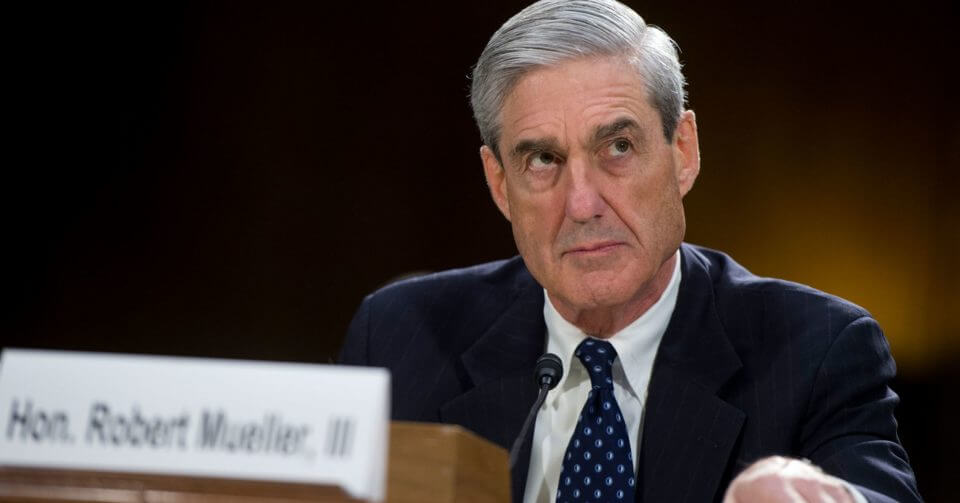
“Rarely do media reports focus on the political leanings of prosecutors, investigators, or witnesses. It is, however, often a highly relevant consideration in cases where selective prosecution claims are made.”
In the wake of the release of politically charged internal communications, Republicans, Democrats, and their media adherents have engaged in an all-too-familiar, routinely surface level tug-of-war over allegations of political bias connected with the Mueller-Russia-Trump investigation. As these discordant factions posit painfully perfunctory platitudes, a legal scholar has identified a vital concern. It is one that could be critical to the ultimate viability of future envisioned and emergent prosecutions. Not surprisingly, this consideration has been virtually ignored in the ponderous, predictably parochial, partisan posturing.
Professor Ron Carlson, Fuller E. Callaway Chair of Law Emeritus at the University of Georgia School of Law, a nationally recognized expert on the laws of evidence, trial practice, and criminal procedure, observes, “Currently, the focus appears to be on debating whether political bias exists. Very little attention has been paid to what could become far more impactful. That is, if demonstrated, how political bias could affect subsequent proceedings.”
What Carlson is talking about is a developing area of criminal law: the defense of political bias. Criminal defendants are entitled to impartial prosecutions. Accordingly, where charges emanate from political preconception as opposed to a neutral and detached application of the facts and law, Carlson notes that a host of normally unavailable vistas may, in compelling cases, become viable options to aggrieved criminal defendants. These may include but are not limited to: discovery into internal communications of investigators and prosecutors; occasional disqualification of prosecutor offices; reassignment of the case to different prosecutors or offices; reversal of convictions; and dismissal of charges.
With this in mind, the possibility of an impending quagmire is readily apparent. In the future, anyone charged with anything stemming from the Mueller investigation might be expected to raise political bias as a defense, using, for instance, some of the released communications that have garnered national attention as the basis. This has the potential to grind resolution of any cases made to a halt, with prosecutors and defense lawyers battling over what recompense is most appropriate and just how far these remedies should go. Such a miring could involve defense arguments that corrective measures are required if investigators and prosecutors merely appeared skewed against Donald Trump (or in favor of Hillary Clinton), regardless of whether they actually were.
Even more, Mueller’s investigators and subsequent prosecutors, wherever conceivably located, might be vexed by aggressive defense lawyers arguing under the Confrontation Clause of the Sixth Amendment. “One of the areas of cross-examination that is constitutionally guaranteed in criminal cases is witness bias,” Carlson imparts, adding, “Bias impeachment is so inherently relevant that the Supreme Court has determined that it is constitutional error for a trial judge to reject and exclude it.”
Imagine, then, some of America’s top criminal defense lawyers hammering prosecution witnesses with the contents of e-mails, text messages, and internal memoranda. Stacks of downloaded copies might be introduced as defense exhibits at future trials. The defense might call disaffected staffers (if they exist) to testify about possible insider bias. Opening statements might start with poster boards displaying some of the most radioactive text language. Final argument PowerPoint slides could do the same.
Even prosecutors and investigators who did not exhibit bias personally would not necessarily be immune from attacks by defense counsel. Any of them could be asked about what they were doing while the allegedly politically motivated parties were purportedly engaging in collusion.
What if a defense alleges stonewalling—or worse—in connection with disclosure or maintaining of evidence that might demonstrate this type of bias (to the extent it might exist)? Although this has yet to occur, there is a possibility that any demonstrated wrongful refusal to comply with requests to turn over correspondence, or their attempted destruction, could be introduced as well.
Carlson explains the law of admissions by conduct, “While it is unclear whether it applies here, the basic rule is that when someone’s actions make a statement, the behavior is admissible against them as if they actually said the words. Flight from the scene of a crime is an example. Attempts to hide or destroy evidence and what we call spoliation—willful destruction—of evidence are potential grounds for exploration by a defense attorney.”
In the Mueller inquiry, will these principles coalesce? In future prosecutions, will defense attorney motions to dismiss charges or their cross-examinations of government witnesses be based upon allegations of political bias? While Carlson did not offer a specific take on that question, he added, “One would think that would become part of the discourse.”
When asked about how this consideration relates to the Mueller investigation, Carlson concentrates on principles of law: “The considerations here have Constitutional roots that transcend political partisanship, at least as a legal matter.”
Whether claims of political bias will make their way to a courtroom soon remains to be seen. In the event they do, Carlson advises observers to contemplate the ways those claims will impact the trial process.
Carlson’s observations also illuminate a gaping hole in the media coverage of the Mueller probe. Rarely do media reports focus on the political leanings of prosecutors, investigators, or witnesses. It is, however, often a highly relevant consideration in cases where selective prosecution claims are made. As this article demonstrates, political bias can become a potent argument where a defendant claims to have been targeted because of political considerations.
Vic Reynolds is the elected District Attorney of Cobb County, Georgia in Metro Atlanta, where Mike Carlson serves as one of his Deputy Chief Assistant District Attorneys. They are regular lecturers on the laws of evidence, trial practice, criminal procedure, ethics and professionalism, and both are co-authors of legal texts with Prof. Ron Carlson. Mike Carlson is also Prof. Carlson’s eldest son.










